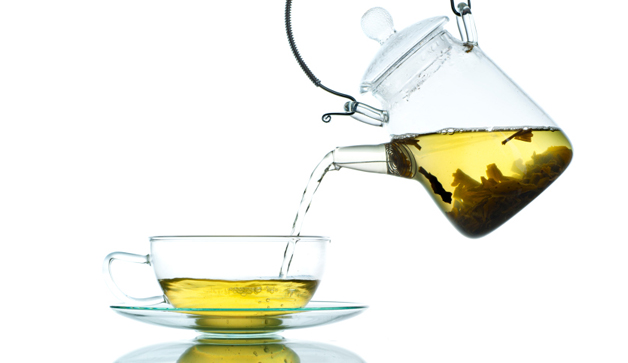|
 Green tea has generally been considered a healthy beverage. Research has linked its potent antioxidant — epigallocatechin gallate, aka EGCG — to health benefits such as reduced risk of stroke, heart disease, cancer and diabetes. But as this article on the Prevention website points out, not all green tea is the same, especially when comparing brewed tea with the bottled varieties. Green tea has generally been considered a healthy beverage. Research has linked its potent antioxidant — epigallocatechin gallate, aka EGCG — to health benefits such as reduced risk of stroke, heart disease, cancer and diabetes. But as this article on the Prevention website points out, not all green tea is the same, especially when comparing brewed tea with the bottled varieties.
In an independent test, ConsumerLab.com closely examined green tea products and found that some bottle varieties are just little more than flavored water and the leaves may be contaminated with lead. The lab tests also focused on how accurately the product labeling reflected the amount of antioxidants actually in the teas, whether there were contaminants in the tea and also tested the amount of caffeine.
None of the four green teas selected by ConsumerLab listed the amount of the antioxidant EGCG and that’s no surprise because this antioxidant is lacking in these products. The one brand to list an amount of any kind of antioxidant, Honest Tea Green Tea with Honey, only contained 62.7% of the 190 mg of catechins the 16.9-oz bottle touted. It also had the second highest amount of EGCG of the four bottled green teas tested by the lab with 27.2 mg per 8 oz. Harney & Sons Organic Green had the most EGCG with 46.8 mg and Diet Snapple Green Tea had the least amount at 3.5 mg. All of the bottled teas contained some type of sweetener.
When it comes to brewed teas, green tea brewed from loose leaves had the best and most potent concentration of EGCG. However, some green tea bag brands — including Bigelow and Lipton Celestial Seasoning’s K-Cup — also contained concentrations of lead. The study also found that decaffeinated green tea bags, including tea from Salada and Bigelow, did not contain measurable amounts of lead.
So while green tea can be a healthy beverage, it’s important to make an informed choice by knowing what’s in the product. You can read the entire Prevention.com article here.
Tell your friends about Syfo! |